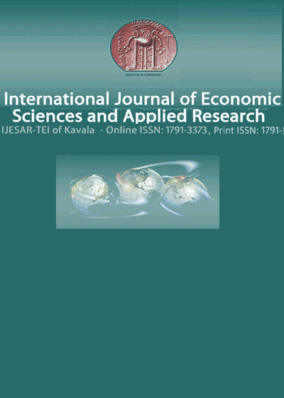Does human capital cause economic growth? : a case study of India
Part of : International journal of economic sciences and applied research ; Vol.3, No.1, 2010, pages 7-25
Issue:
Pages:
7-25
Abstract:
This study examines the time series behavior of investment in physical capital, human capital (comprising education and health) and output in a co-integration framework, taking growth of primary gross enrolment rate and a dummy for structural adjustment programme (openness which has been initiated in 1991) as exogenous variables in India from 1960 to 2006. The results suggest that physical capital investment has no long-run nor short-run effect but the human capital investment has significant long-run effect on per capita GNP; the stock of human capital measured by primary gross enrolment rate (lagged by three years) and openness is found to have a significant effect on growth ofper capita GNP. The Generalized Impulse Response Function confirms that the innovation in per capita GNP growth can only explain the movements of the growth of per capita GNP (itself) and investment in education human capital positively and significantly only for a short period of time but does not explain the movements of the investment in physical capital and health human capital. Moreover, the innovation in change in education human capital investment significantly and positively explains the movement of the changes in education human capital investment (itself), health human capital investment and growth of GNP per capita; the innovation in health human capital investment significantly explains the changes of education and health human capital investment only. This study may help towards policy modeling of economic growth in India, taking into account the relevance of endogenous growth.
Subject:
Subject (LC):
Keywords:
human capital investment, cointegration, economic growth
Notes:
Περιέχει πίνακες, διαγράμματα και βιβλιογραφία, JEL classification: C22, O47, F43




